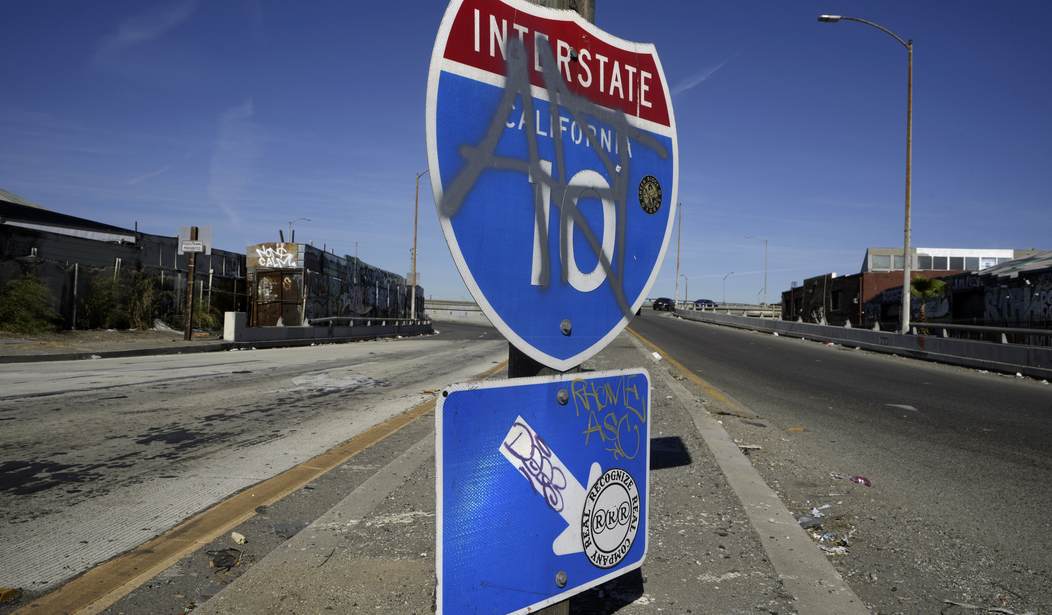Isn't California broke? I seem to remember that the impeccably coiffed Governor Newsom had, at last report, managed to take a state with a comfortable budget surplus and convert that to a staggering deficit. That makes it a bit of a head-scratcher when they adopt policies like cutting off the sale of internal combustion engine (ICE) vehicles in favor of electric vehicles (EV).
But (as always) there's a catch. Now we learn that the state's power grid will require $20 billion in upgrades to support all the EV charging stations that this will require. In other words — the state is about to get a lesson on a fundamental law of the universe, TANSTAAFL — There Ain't No Such Thing As A Free Lunch.
California must spend up to $20 billion on transmission line upgrades to support energy transfers to electric vehicles, according to a new Berkeley study. This figure does not include grid stress from further electrification efforts away from gas appliances, and could prove to be significantly higher.
The study’s author estimates that by 2035, 50% of “feeder” transmission lines will be “overloaded by EV charging demand,” a figure that will grow to 67% by 2045. They say the cost of upgrading transmission lines for EVs could cost $6 to $20 billion, or about 10% to 40% of the current transmission system. While the authors say “additional infrastructure cost drives the electricity price up,” they hypothesize “the growth of total electricity consumption drives the rate down, which leads to a net impact of rate reduction according to our estimation.”
They hypothesize — like they hypothesized that the Train to Nowhere would be completed by 2020?
California faces a nearly $38 billion budget deficit for the coming fiscal year. The once-Golden state is broke. They can't do this. Unlike the federal government, California can't just start printing money; they have to raise it somewhere — or borrow it. This is a state whose government has become completely unglued, and any pretense of fiscal responsibility has gone by the wayside.
See Related: Go Woke to Work: California Tries to DEI Occupational Licensing, Expediting Applications for Black People
California Deputy Sheriff Busted While Trafficking Fentanyl for Mexican Drug Cartel
The states' EV plan will require quadrupling the current number of EV chargers.
California currently has 10,000 public high-speed EV chargers, and plans to build 30,000 more. However, with EV sales falling — sales fell 10% in the last quarter of 2023 compared to the previous quarter, and another 3% the quarter before that — it’s unclear if consumer enthusiasm for electric vehicles is waning as high interest rates making vehicle purchases more expensive, or if concerns about poor reliability, higher repair cost and range and charger anxiety are to blame.
These costs will, of course, be passed on to consumers.
Everything about this project seems to be focused on making life in California more expensive, less convenient, and less free. The state wants to restrict what kinds of vehicles that residents may buy; what's next?
Look, as I've said, California's a lovely place. (I prefer Alaska, but as my grandfather was fond of saying, every cat its own rat.) I can see the appeal; I really can. I have, during a couple of long-term consulting projects there, maintained a second residence in California. In the early 2000s, things weren't so bad, but I kept an apartment in Silicon Valley for all of 2017 while working with a start-up company there and took my company car out to use while in the area. Of course, someone noticed the Colorado plates on the car in the parking garage and whined to the state about it, and we had to go back and forth with California state busybodies for some time, arguing that we were not California residents, were not going to be California residents, and that we under no circumstances were going to register our car in California — and pay their outrageous registration fees, taxes and, oh yeah, auto insurance rates.
It is the nature of government to grow ever larger and more intrusive. California is a great example of that. But now, on this issue of charging stations, as in so many other areas, the state is facing a good hard dose of reality.














Join the conversation as a VIP Member